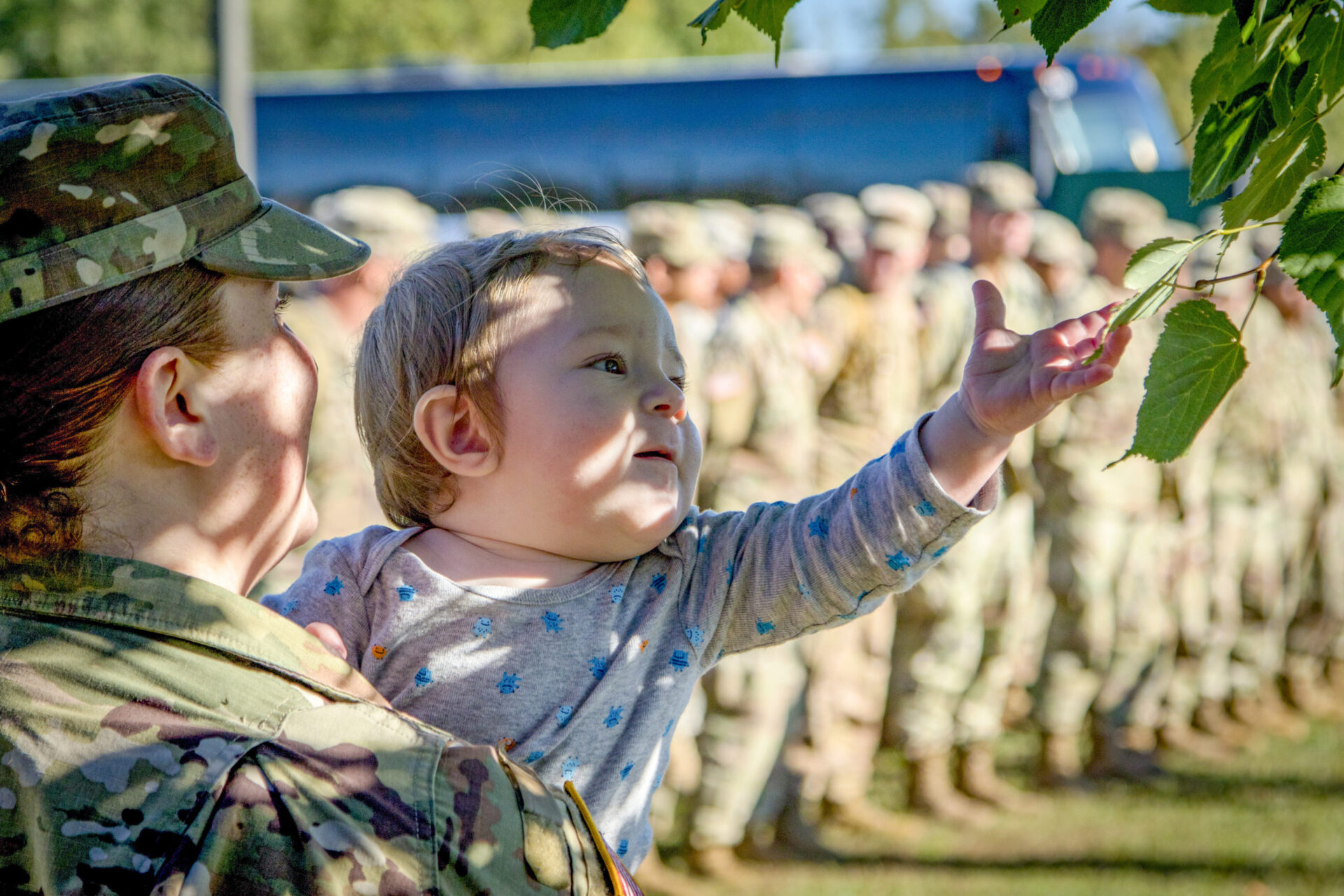14 April 2021
Examining How SARS-CoV-2 is Passed Through Placenta From Mother-to-Baby
Does the mother’s placenta shield a baby from contracting COVID-19 during pregnancy? A medical research team at Madigan Army Medical Center is examining the human placenta’s possibilities in preventing vertical transmission, or the passage of the virus from mother to baby before and after birth.
Congenital infection of SARS-CoV-2 appears to be exceptionally rare despite many cases of COVID-19 during pregnancy. Only a few cases of possible vertical transmission have demonstrated placental infection associated with COVID-19 but the literature is unclear around vertical transmission due to the way testing was conducted. Since the evidence has shown that pregnancy is a risk factor for severe illness in women with COVID-19, there is much interest in the scientific community around understanding the placenta’s immune response against the virus.
Principal Investigator Nicholas Ieronimakis, PhD, a clinical research scientist at Madigan Army Medical Center, was awarded an investigational grant in reproductive medicine and maternal health from Ferring Pharmaceuticals to evaluate human placenta response to SARS-CoV-2 exposure. Ferring Pharmaceuticals put out a call to “fund exploratory, basic, and clinical research grants to collect data and expand knowledge about the effects on SARS-CoV-2 on reproduction, pregnancy, and fetal/neonatal health.” The award, issued in July 2020, is being administered by The Geneva Foundation.
In a research proposal titled, “Evaluating the human placenta response to SARS-CoV-2 exposure in a dual-cotyledon, dual-perfusion assay,” Dr. Ieronimakis proposes that the characteristics of human placenta and its unique immune system may afford the fetus protection but that research efforts for vertical transmission remain lacking.
Proof of placental infection requires demonstration of viral localization within placental tissue,” said Dr. Ieronimakis. “Established in the 1990s at Madigan, our placenta perfusion system will be used to address essential questions regarding the placental innate immune responses against the virus and the potential for vertical transmission.”
The placenta prevents the mother’s immune system from rejecting her own fetus, while also preventing most bacteria and some viruses from passing from mother to baby. Reports indicate that babies born to COVID-19-infected mothers are rarely infected and most newborns that test positive have mild or asymptomatic infections.
“This is a very unique aspect of COVID,” said Dr. Ieronimakis. “While pregnant mothers are severely at risk, the placenta seems to completely block the virus from infecting their babies. Our research focuses on understating how the placentas fight this virus and prevent its transmission to the fetus. In essence, we hope the placenta can teach us not only how to combat SARS-CoV-2 so that we are better prepared for future outbreaks.”
Disclaimer: The views expressed do not reflect the official policy of the Army, the Department of Defense, or the U.S. Government.

"While pregnant mothers are severely at risk, the placenta seems to completely block the virus from infecting their babies. Our research focuses on understating how the placentas fight this virus and prevent its transmission to the fetus."
Nicholas Ieronimakis, PhD
HIGHLIGHTS
- Only a few cases of possible vertical transmission have demonstrated placental infection associated with COVID-19 but the literature is unclear around vertical transmission due to the way testing was conducted.
- Geneva researcher Nicholas Ieronimakis, PhD, a clinical research scientist at Madigan Army Medical Center, was awarded an investigational grant in reproductive medicine and maternal health from Ferring Pharmaceuticals to evaluate human placenta response to SARS-CoV-2 exposure.
- Reports indicate that babies born to COVID-19-infected mothers are rarely infected and most newborns that test positive have mild or asymptomatic infections.


